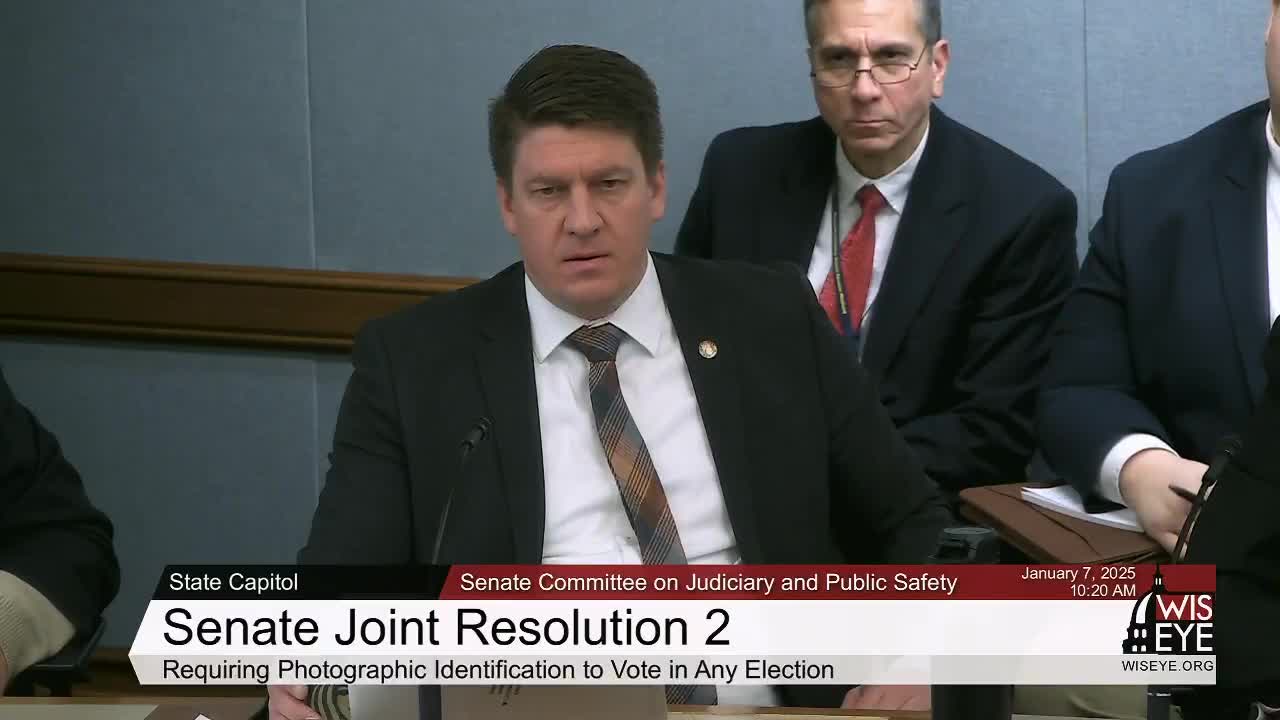Voter ID Debate Highlights Challenges for Low-Income and Disabled Voters in Rural Areas
This article was created by AI summarizing key points discussed. AI makes mistakes, so for full details and context, please refer to the video of the full meeting. Please report any errors so we can fix them. Report an error »

In a recent meeting of the Senate Committee on Judiciary and Public Safety, discussions centered around voter ID requirements and accessibility for eligible voters in Wisconsin. A significant point raised was the impact of ID laws on various demographics, particularly the elderly, disabled, and low-income individuals who may struggle to obtain identification.
Committee members highlighted that approximately 11% of eligible voters lack an ID, raising concerns about their ability to participate in elections. One member emphasized the challenges faced by those who may not have the time or resources to visit a DMV, especially those juggling multiple low-wage jobs. This discussion underscored the importance of ensuring that all eligible voters can access the necessary documentation to exercise their right to vote.
The League of Voters was questioned about their efforts to assist individuals in getting to polling places. They confirmed that they partner with organizations like Lyft to provide transportation services, although much of this support is in-kind rather than direct financial expenditure. This raised further inquiries about the allocation of resources and whether sufficient funding is directed towards facilitating voter access.
The conversation also touched on the experiences of voters in rural areas, with some committee members asserting that they had not encountered individuals unable to reach polling stations. This perspective highlighted a divide in understanding the challenges faced by different communities across the state.
As the committee continues to explore these issues, the implications of voter ID laws and accessibility remain critical topics. The discussions reflect a broader commitment to ensuring that all eligible voters can participate in the democratic process, with ongoing efforts needed to address the barriers that some individuals face in accessing the polls.
Committee members highlighted that approximately 11% of eligible voters lack an ID, raising concerns about their ability to participate in elections. One member emphasized the challenges faced by those who may not have the time or resources to visit a DMV, especially those juggling multiple low-wage jobs. This discussion underscored the importance of ensuring that all eligible voters can access the necessary documentation to exercise their right to vote.
The League of Voters was questioned about their efforts to assist individuals in getting to polling places. They confirmed that they partner with organizations like Lyft to provide transportation services, although much of this support is in-kind rather than direct financial expenditure. This raised further inquiries about the allocation of resources and whether sufficient funding is directed towards facilitating voter access.
The conversation also touched on the experiences of voters in rural areas, with some committee members asserting that they had not encountered individuals unable to reach polling stations. This perspective highlighted a divide in understanding the challenges faced by different communities across the state.
As the committee continues to explore these issues, the implications of voter ID laws and accessibility remain critical topics. The discussions reflect a broader commitment to ensuring that all eligible voters can participate in the democratic process, with ongoing efforts needed to address the barriers that some individuals face in accessing the polls.
View full meeting
This article is based on a recent meeting—watch the full video and explore the complete transcript for deeper insights into the discussion.
View full meeting